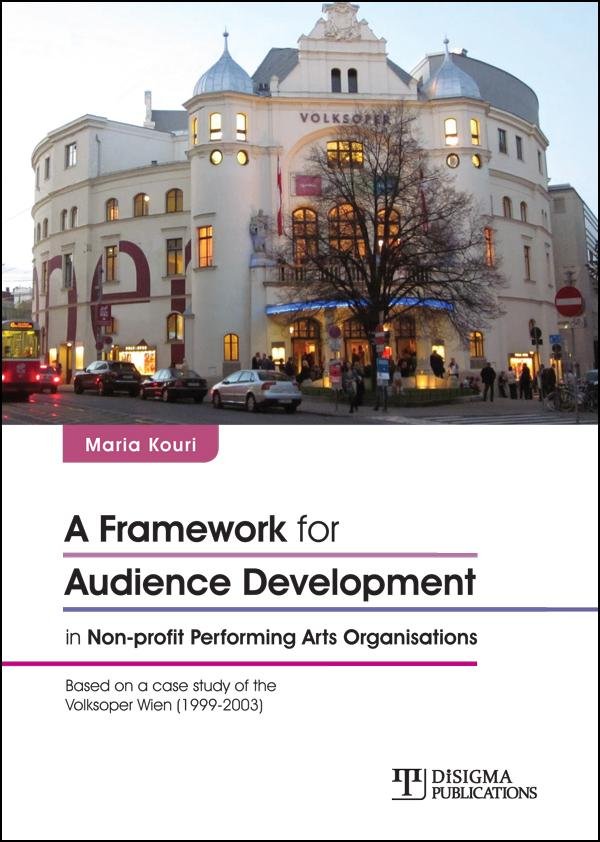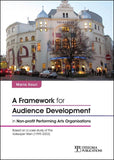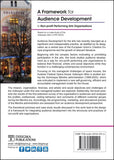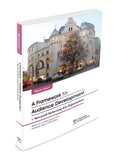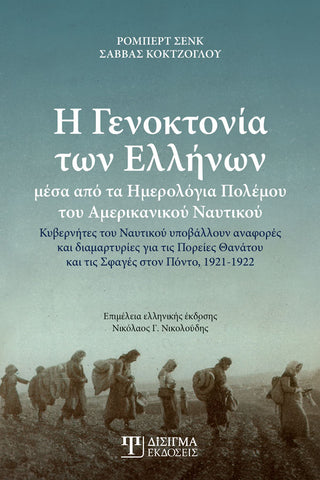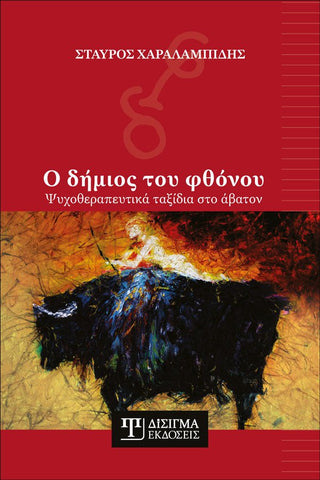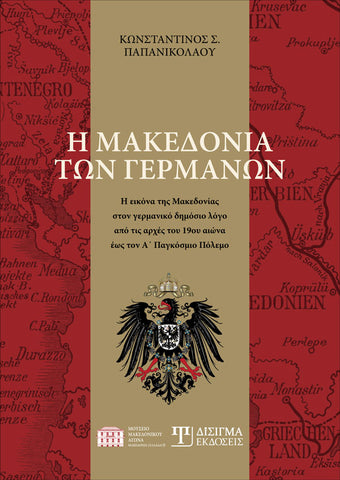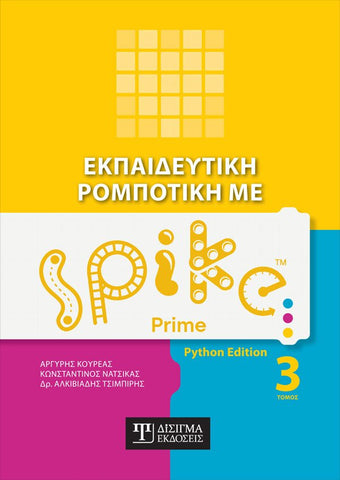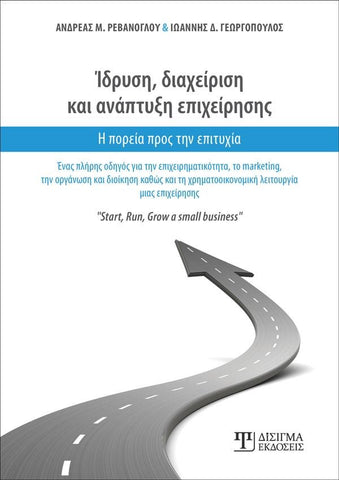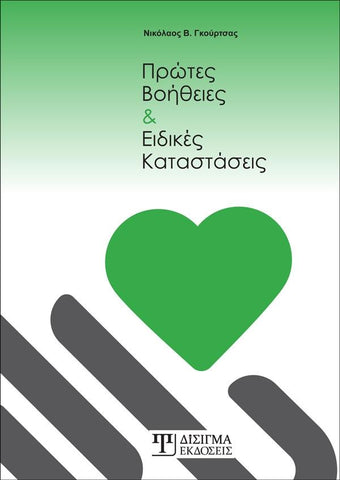
A Framework for Audience Development
A Framework for Audience Development
Audience Development for the arts has recently resurged as a significant and indispensable practice, as testified by its designation as a central axis of the European Union’s Creative Europe programme and the growth of relevant literature.
This book explores the complex factors motivating or prohibiting participation in the arts and studies audience development as a way for non-profit performing arts organisations to balance their financial, artistic and social objectives while they function in a challenging contemporary environment.
Focusing on the managerial challenges of opera houses, the Austrian Federal Opera House Volksoper Wien is studied during the Dominique Mentha administration (1999-2003), which was entrusted to implement a new self-governing, efficient and accountable management model for the House.
The book studies the mission, organisation, finances, and artistic and social objectives and challenges of the Volksoper under this new managerial system. Additionally, it presents the results of the first extensive survey of the organisation’s audiences and analyses the profiles, preferences, visiting behaviour and comments of different customer groups during the Mentha era. Accordingly, the programming, marketing, and educational policies of the Mentha administration are assessed from an audience development perspective.
The theoretical premises and case study results discussed in this work lead to the design of a framework for integrating audience development into the structures and practices of non-profit arts organisations.
Η Ανάπτυξη Κοινού πρόσφατα επανήλθε στο προσκήνιο ως μια σημαντική και απολύτως απαραίτητη πρακτική για τους πολιτιστικούς οργανισμούς, όπως καταδεικνύεται από την ανάδειξή της σε κεντρικό άξονα του Προγράμματος Δημιουργική Ευρώπη της Ευρωπαϊκής Ένωσης καθώς και από την αύξηση της σχετικής ερευνητικής βιβλιογραφίας.
Η παρούσα μελέτη διερευνά τους πολύπλοκους παράγοντες που παρακινούν ή αποθαρρύνουν την συμμετοχή των ανθρώπων στις τέχνες. Από αυτή την αφετηρία και με επίκεντρο τις παραστατικές τέχνες, μελετάται η Ανάπτυξη Κοινού ως μια μέθοδος που διευκολύνει τους μη κερδοσκοπικούς πολιτιστικούς φορείς να εξισορροπήσουν τους καλλιτεχνικούς, κοινωνικούς και οικονομικούς στόχους τους στο σύγχρονο, άκρως ανταγωνιστικό περιβάλλον.
Εστιάζοντας στις διοικητικές προκλήσεις που αντιμετωπίζουν σήμερα τα λυρικά θέατρα, μελετάται η περίπτωση του Αυστριακού Ομοσπονδιακού Λυρικού Θεάτρου Volksoper Wien υπό την καλλιτεχνική διοίκηση του Dominique Mentha (1999-2003), στον οποίο ανατέθηκε να εφαρμόσει ένα νέο και αποτελεσματικό αυτοδιοικούμενο μοντέλο για τον οργανισμό, συνέπεια της νομικής απόσχισης των Ομοσπονδιακών Θεάτρων από τις κρατικές δομές και διαχείριση.
Το βιβλίο μελετά την αποστολή, την οργανωτική δομή, τα οικονομικά στοιχεία, τους καλλιτεχνικούς και κοινωνικούς στόχους που έθεσε, αλλά και τις προκλήσεις που αντιμετώπισε η Volksoper στο νέο αυτό διοικητικό σύστημα. Επιπλέον, παρουσιάζει τα αποτελέσματα της πρώτης εκτενούς έρευνας του κοινού του οργανισμού και αναλύει τα προφίλ, τις προτιμήσεις, την συμμετοχική συμπεριφορά καθώς και τα σχόλια των διαφορετικών ομάδων κοινού κατά τη διάρκεια της διοικητικής θητείας του Mentha. Βάσει αυτών και υπό το πρίσμα της ανάπτυξης κοινού αξιολογούνται οι πολιτικές προγραμματισμού, μάρκετινγκ και εκπαίδευσης της διοίκησης Mentha.
Συμπερασματικά, το θεωρητικό πλαίσιο και τα αποτελέσματα της μελέτης περίπτωσης που αναλύονται σε τούτο το πόνημα επιτρέπουν την πρόταση ενός Πλαισίου για την ενσωμάτωση της Ανάπτυξης Κοινού στη δομή και τις λειτουργίες των μη κερδοσκοπικών πολιτιστικών οργανισμών.
Preface
Acknowledgements
Introduction
Thesis Formulation
Thesis Outline
CHAPTER I: Non-profit Performing Arts Organisations in the Contemporary Environment
CHAPTER II: Audience Development
2.1 Main Points of Audience Development
2.2 Challenges of Audience Development
CHAPTER III: Consumer Behaviour and Arts Participation
3.1 Beliefs and Attitudes on Opera
3.2 The Opera Audience
CHAPTER IV: The Volksoper
4.1 The Volksoper from 1896 to 1999
4.2 Separation of the Federal Theatres – The Volksoper Wien GmbH
4.2.1 The Volksoper in the New System
4.2.1.1 Mission
4.2.1.2 Organisational Structure
4.2.1.3 Finances
CHAPTER V: The Audience of the Volksoper
5.1 The Volksoper Audiences in the Mentha era
5.1.1 Subscription - ‘Abonnement’
5.1.2 Cycles - ‘Zyklen’
5.1.3 Golden Card
5.2 Publikumsbefragung 2003 – The 2003 Audience Survey
5.2.1 Aims of the Survey
5.2.2 Method
5.2.2.1 Participants - Procedure
5.2.2.2 The Questionnaire
5.2.3 Data Analysis
5.2.3.1 Appropriateness of the Chosen Survey Method
5.2.3.2 Analysing the Data
5.3 Describing the Volksoper Audiences
5.3.1 General Profile
5.3.1.1 The Volksoper Audiences by Customer Type
5.4 Visiting Behaviour
5.4.1 Attendance Frequency
5.4.2 Visiting Reasons
5.4.3 Accompaniment at the Volksoper Visit
5.5 Segmentation, Target Groups and a New Set of Audience Development Aims for the Volksoper
CHAPTER VI: Programming
6.1 Mentha’s Artistic Policy and the Seasons’ Programmes
6.2 Principal and Secondary Genre Preferences of the Volksoper Audiences
6.2.1 Principal Preferences
6.2.2 Secondary Preferences
6.2.3 Overlapping of Audiences
6.3 Programming and Audience Development Aims
CHAPTER VII: Marketing
7.1 Marketing and Audience Development
7.2 Marketing in the Volksoper
7.3 Image and Repositioning of the Volksoper
7.4 The Marketing Mix
7.4.1 Product
7.4.1.1 Definition
7.4.1.2 Membership Schemes
7.4.1.2.1 Subscription
7.4.1.2.2 Cycles
7.4.1.2.3 Golden Card
7.4.1.3 Other Services
7.4.2 Place
7.4.2.1 Definition
7.4.2.2 Venue
7.4.2.3 Ticket Distribution
7.4.2.4 Scheduling
7.4.3 Price
7.4.3.1 Definition
7.4.3.2 Setting the Price
7.4.4 Promotion
7.4.4.1 Definition
7.4.4.2 The Volksoper Promotion Policy
7.4.4.2.1 Advertising
7.4.4.2.2 Personal Selling
7.4.4.2.3 Sales Promotion
7.4.4.2.4 Public Relations
CHAPTER VIII: Education
8.1 Arts Education in the Volksoper
CHAPTER IX: Conclusions
9.1 Assessing Audience Development in the Volksoper during the Mentha Era
9.2 The Framework
9.2.1 Audience Development in Non-Profit Performing Arts Organisations
9.2.2 Adjusting the Organisation’s Structures and Practices
9.2.3 The Importance of Research
9.2.4 Balancing between Attenders and Non-Attenders
9.2.5 Planning the Programme
9.2.6 Acknowledging the Role of Marketing
9.2.7 Prioritising Education – Building Partnerships
9.3 A Final Note on the Volksoper
Bibliography
APPENDIX
Downloads
| File Type | File Name |
|---|---|

|
Περιεχόμενα |

|
Ενδεικτικό Κεφάλαιο |
| Συγγραφέας | Βιογραφικό |
|---|---|

|
Η Μαρία Κουρή είναι μόνιμη Επίκουρη Καθηγήτρια στο γνωστικό αντικείμενο «Πολιτιστική Διαχείριση: συγκρότηση πολιτιστικών οργανισμών και ανάπτυξη τοπικών κοινωνιών» στο Τμήμα Ιστορίας, Αρχαιολογίας και Διαχείρισης Πολιτισμικών Αγαθών του Πανεπιστημίου Πελοποννήσου. Το διδακτικό, ερευνητικό και συγγραφικό της έργο επικεντρώνεται σε πτυχές της πολιτιστικής πολιτικής και διαχείρισης, όπως: εθνική και διεθνής πολιτιστική πολιτική, πολιτιστική διπλωματία, συμμετοχική διαχείριση, διοίκηση, επικοινωνία, εκπαίδευση, ανάπτυξη κοινού και νέες τεχνολογίες στους πολιτιστικούς οργανισμούς, πολιτιστικός τουρισμός, και ο πολιτισμός ως παράγων αειφόρου ανάπτυξης. Έχει συμμετάσχει σε χρηματοδοτούμενα διεθνή ερευνητικά προγράμματα με αντικείμενο διάφορες θεματικές της πολιτιστικής διαχείρισης. Ως ερευνητική υπότροφος του Ιδρύματος Fulbright, εκπόνησε ερευνητικό έργο στο University of Chicago, έχει υπάρξει μεταδιδακτορική υπότροφος του Ιδρύματος Κρατικών Υποτροφιών και τιμήθηκε με ερευνητική υποτροφία και τον τίτλο Harvard University Center for Hellenic Studies Fellow in Comparative Cultural Studies. Έχει διδάξει σε πανεπιστήμια της Ελλάδας, μεταξύ των οποίων το Ελληνικό Ανοικτό Πανεπιστήμιο και το πρώην ΤΕΙ Ηπείρου, και υπήρξε προσκεκλημένη διδάσκουσα σε πανεπιστήμια του εξωτερικού, όπως το πρώην Telemark University Νορβηγίας. Επαγγελματικά, έχει εργαστεί στα τμήματα παραγωγής και μάρκετινγκ ελληνικών και ξένων πολιτιστικών οργανισμών. Έχει διατελέσει σύμβουλος του Γενικού Γραμματέα του Υπουργείου Πολιτισμού σε θέματα εσωτερικής και εξωτερικής πολιτιστικής πολιτικής, καθώς και Εμπειρογνώμων Πολιτισμού της Οικονομικής και Κοινωνικής Επιτροπής Ελλάδος. Πρωτεύσασα και αριστούχος απόφοιτος του Παντείου Πανεπιστημίου (Τμήμα Επικοινωνίας και Μέσων Μαζικής Ενημέρωσης – Υπότροφος ΙΚΥ), διαθέτει τίτλο μεταπτυχιακών σπουδών στην Ευρωπαϊκή Πολιτιστική Πολιτική και Διαχείριση (University of Warwick – Υπότροφος Συλλόγου «Οι Φίλοι της Μουσικής»). Είναι αριστούχος διδάκτωρ του Πανεπιστημίου Βιέννης (Institut für Theater-, Film-und Medienwissenschaft). Έχει λάβει υποτροφίες του Richard Wagner Verband Wien και του ιαπωνικού Υπουργείου Εξωτερικών και είναι αριστούχος διπλωματούχος πιάνου του Εθνικού Ωδείου. |

